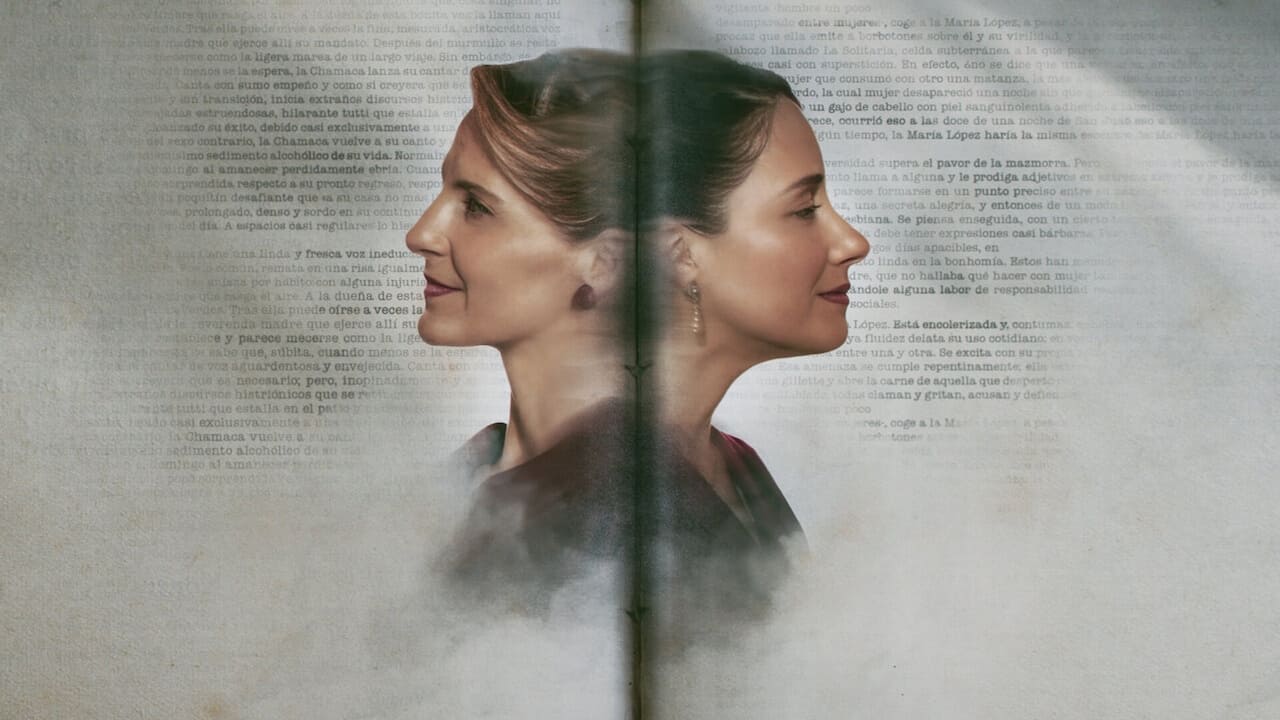
"In Her Place" is a Chilean cinematic gem that delves into the complexities of love, passion, and justice, set against the backdrop of the 1950s. The film revolves around the real-life scandal of María Carolina Geel, a renowned author whose tumultuous affair leads to a tragic and highly publicized murder. Elisa Zulueta shines in her portrayal of Mercedes, a reserved and unassuming secretary who finds herself inexplicably drawn into the whirlwind of the case. Her character is a poignant embodiment of the era's repressed female experience, yearning for a life beyond the confines of her mundane existence. Francisca Lewin delivers a compelling performance as the enigmatic María Carolina Geel, capturing the essence of a woman who defies societal norms with her literary prowess and unapologetic pursuit of desire.
The narrative unfolds in Santiago, Chile, during the year 1955, a time when the country was grappling with its own social and political transformations. The film captures the zeitgeist of the era, offering a window into a society bound by tradition yet on the cusp of change. The murder at the heart of the story sends shockwaves through the nation, and the subsequent trial becomes a sensation, symbolizing more than just a crime of passion. It represents a clash between the old guard and modernity, between the freedom of expression and the strictures of morality. As Mercedes becomes increasingly mesmerized by the case, her own life begins to mirror the drama unfolding before her, prompting her to question her place in the world and the choices she has made.
Director Marcela Said and writer Paula del Fierro have crafted a thought-provoking film that transcends the typical courtroom drama. "In Her Place" is a nuanced exploration of female identity, exploring themes of empowerment and the consequences of challenging the established order. The film's strength lies in its ability to weave a narrative that is as much about the inner lives of its characters as it is about the external events that shape their destinies. Through the lens of a society in flux, the story of Mercedes and María Carolina Geel becomes a powerful commentary on the universal desire for autonomy and the courage it takes to seek it against all odds. The film is a testament to the enduring resilience of women and the complex dance between personal desires and societal expectations.
Full Cast of In Her Place
Sebastián Apiolaza
Enrique Valenzuela
Lucas Jadue
Adams Pino
Francisca Feuerhake
Carlos Donoso
Rosario Bahamondes
María José Pargas
Felipe Zepeda
Nelson Polanco
Claudio Riveras
Muriel Miranda
Katy Cabezas
Andrés Skoknic
Marcela Salinas
Ignacio Arriata
Joaquín Ritter
Aaron Hernandez
Guilherme Sepúlveda
Valentina Véliz
Rodrigo Jiménez
Rodolfo Herrera
Crew of In Her Place
Full backstage crew list →- Released on September 30, 2024




















